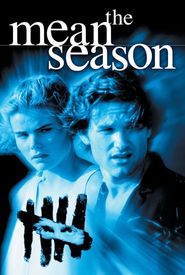Phillip Borsos, a renowned Canadian filmmaker, has garnered significant success in international markets, making him a prominent figure in the industry.
As a member of the "Vancouver School", Borsos began his directorial career with several short subjects, commencing with the 1976 film Cooperage. This was followed by Nails (1979),which he also produced, and earned an Academy Award nomination for Best Documentary (Short Subject).
His feature film debut, The Grey Fox (1982),released when he was just 27 years old, received widespread critical acclaim and won the Canadian Genie Awards for both Best Film and Best Direction. This early success paved the way for future endeavors.
However, the making of Bethune (1990),a Canada-China co-production, was marred by financial and other difficulties. Despite his efforts, Borsos did not get to finalize the cut, and the film is often regarded as a hagiography, failing to delve deeper into the subject matter.
Additionally, Borsos faced setbacks when his backers withdrew, forcing him to halt production on his adaptation of John Irving's novel, The Cider House Rules.
Undeterred by his health issues, which included an ongoing battle with leukemia, Borsos continued his career as a director from 1994 onwards, demonstrating his resilience and determination in the face of adversity.






















